Crypto TDS Calculator
TDS Impact Analysis
TDS Amount:
GST on Fee:
Total Tax Paid:
Threshold Status:
Important: 1% TDS is deducted from every transaction exceeding your annual threshold, regardless of profit or loss. For crypto-to-crypto trades, both buyer and seller pay TDS.
Compounding Effect: For frequent traders, TDS can erode up to 10% of your trading capital over time.
If you trade cryptocurrency in India, you’ve probably noticed money disappearing from your account before you even see the profit. That’s not a glitch. It’s the 1% Tax Deducted at Source (TDS) - a rule that quietly changed how millions of Indian crypto users handle their trades. It’s not about whether crypto is legal. It’s about 1% TDS crypto India being enforced, and if you don’t understand it, you’re either paying too much or risking penalties.
What Exactly Is the 1% TDS on Crypto?
The 1% TDS isn’t a tax on profits. It’s a deduction taken right at the time you trade, sell, or spend crypto. Whether you’re swapping Bitcoin for Ethereum, selling Dogecoin for INR, or using Litecoin to pay for something online - if it’s a transfer of ownership, TDS kicks in. The government doesn’t wait for you to file your return. They take 1% upfront. This rule came into effect on July 1, 2022, under Section 194S of the Income Tax Act. It was introduced to track crypto activity in a market that was largely invisible before. Before this, the tax department had no clear way of knowing who was buying what, or how much. Now, every exchange automatically withholds the tax. If you’re using CoinDCX, WazirX, or ZebPay, you didn’t have to do anything - the system did it for you.Who Pays the 1% TDS - And When?
Not everyone pays TDS on every trade. There are two different thresholds, and it depends on who you are.- If you’re a regular individual or Hindu Undivided Family (HUF) and not required to get your accounts audited, TDS applies only if your total crypto transactions in a financial year (April 1 to March 31) exceed ₹50,000.
- If you’re a business, company, or someone who is required to get audited (like a high-income earner or freelancer with big turnover), the threshold drops to just ₹10,000 per year.
Crypto-to-Crypto Trades? Double the Deduction
Here’s where things get tricky. If you swap Bitcoin for Solana, both you (the seller) and the buyer (the person receiving your Bitcoin) are liable for 1% TDS. That means a single trade can trigger two deductions - one from the seller’s side, one from the buyer’s. So on a ₹1,00,000 trade, ₹1,000 is taken from the seller, and ₹1,000 from the buyer. The total value of the transaction effectively gets hit with 2% in TDS. This doesn’t happen in most other countries. In the U.S., you only pay capital gains tax when you sell crypto for fiat. In Germany, if you hold for over a year, you pay nothing. India is one of the few places that taxes every single transfer, even between two crypto assets. And there’s no exemption for long-term holdings. Even if you held Bitcoin for five years, the moment you trade it, 1% vanishes.What Counts as a ‘Transfer’?
Not all crypto movements trigger TDS. The Income Tax Department is clear: transferring crypto between wallets you own does not count. So if you move Bitcoin from your Coinbase wallet to your Trust Wallet, no TDS. But if you send that same Bitcoin to someone else - even if they’re a friend or family member - and they take ownership, TDS applies. This matters for people who use multiple wallets for security or DeFi staking. You can move freely within your own ecosystem. But the moment you send it out, the tax man steps in. And if you’re using a decentralized exchange (DEX) like Uniswap through a browser wallet, the responsibility falls on the first entity that converts crypto to INR. That’s usually the wallet service or aggregator you’re using.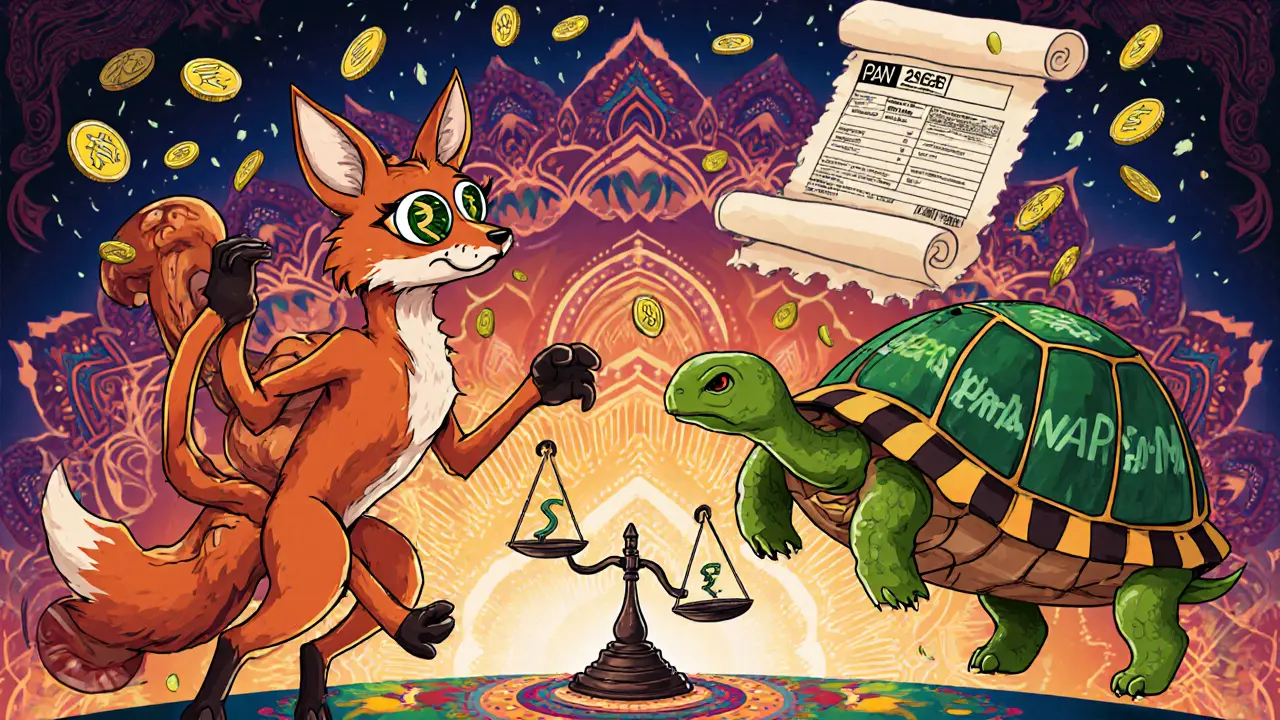
What About P2P and International Exchanges?
If you’re trading on WazirX or CoinDCX, you’re fine. They deduct TDS automatically. But if you’re using P2P platforms like LocalBitcoins or international exchanges like Binance, the burden shifts to you. You must:- Deduct 1% from the payment you receive
- Get the seller’s Permanent Account Number (PAN)
- File Form 26QE within 30 days after the end of each month
- Issue a TDS certificate to the seller within 15 days
The Hidden Costs: How TDS Erodes Your Capital
The biggest complaint from active traders isn’t the 1% - it’s the compounding effect. Let’s say you’re a day trader doing 100 small trades a month, each worth ₹10,000. That’s ₹10 lakh in annual volume. At 1% TDS, you’re paying ₹10,000 in deductions. But here’s the catch: that ₹10,000 isn’t a refundable tax. It’s gone. You can’t use it to offset losses. You can’t carry it forward. You just lost 10% of your trading capital to deductions. Compare that to a 30% tax on gains. If you made ₹50,000 profit, you’d pay ₹15,000. But if you lost ₹50,000, you pay nothing. With TDS, you pay ₹10,000 even if you lost ₹50,000. That’s why many traders stopped trading altogether. ClearTax’s 2025 survey found 63% of salaried individuals quit crypto after TDS kicked in.Double Taxation: TDS + GST on Exchange Fees
In July 2025, India added another layer: 18% GST on exchange platform services. So if you trade ₹2,50,000 worth of crypto and pay ₹1,000 in trading fees, you now pay:- ₹2,500 (1% TDS on the trade)
- ₹180 (18% GST on the ₹1,000 fee)

What’s the Real Impact?
The numbers tell a story. India’s crypto user base dropped from 15 million in 2022 to 10.2 million after TDS launched. It’s now stabilized around 11.7 million - but growth has stalled. Chainalysis reported India’s global crypto market share fell from 1.5% to 0.7%. On the flip side, the government collected ₹1,852 crore in TDS during FY 2023-24 - 27% more than expected. Compliance among registered exchanges is at 98%. But among P2P platforms? Only 32%. That means a growing chunk of trading is moving underground. The Reserve Bank of India’s June 2025 report noted a 37% rise in P2P transactions below the ₹50,000 threshold - suggesting people are splitting trades to avoid TDS. That defeats the whole purpose.What Should You Do?
If you’re an Indian crypto user, here’s what you need to do right now:- Check your total crypto transactions for the financial year (April 1 to March 31). Use your exchange’s transaction history.
- If you’re under ₹50,000 (or ₹10,000 if you’re audited), you’re safe from TDS.
- If you’re over, make sure TDS was deducted. Check Form 26AS - it should show the deductions.
- If you trade on P2P or international platforms, keep records of every trade: timestamps, amounts, counterparty PAN, and proof of TDS deduction.
- Don’t try to split transactions to avoid TDS. The tax department is tracking aggregate activity.
- If you’re confused, hire a tax professional. Costs range from ₹1,500 to ₹5,000 per year - cheaper than a penalty.
What’s Next?
The government is reviewing the thresholds. The Finance Ministry’s 2025-26 budget documents suggest raising the individual threshold from ₹50,000 to ₹1,00,000. That’s a direct response to trader backlash. A new Digital Asset Bill is under review and may replace TDS with a centralized registry that tracks all crypto transfers automatically. That could mean less paperwork - but more surveillance. NPCI is also piloting a system to auto-report crypto transactions to tax authorities through India’s Account Aggregation Framework. By 2026, your crypto activity could be linked directly to your Aadhaar and PAN - no manual filing needed. For now, the 1% TDS is here to stay. It’s not perfect. It’s not fair to small traders. But it’s the law. The question isn’t whether you agree with it. It’s whether you’re complying.Is the 1% TDS on crypto a tax on profits in India?
No, the 1% TDS is not a tax on profits. It’s a deduction taken from the total value of every crypto transfer - whether you made money, lost money, or broke even. It applies to sales, trades, and spending crypto, not just gains.
Do I pay TDS if I transfer crypto between my own wallets?
No, transferring crypto between wallets you own - like from CoinDCX to your Trust Wallet - does not trigger TDS. Only transfers that change ownership, such as sending crypto to someone else, count.
What happens if I trade crypto on Binance or other international exchanges?
If you’re trading on an international exchange and not using an Indian platform, you’re responsible for deducting 1% TDS yourself. You must collect the seller’s PAN, file Form 26QE monthly, and issue a TDS certificate. Most traders skip this and risk penalties.
Can I claim back the 1% TDS if I made a loss?
No, you cannot claim back the 1% TDS if you incurred a loss. The deduction is final and non-refundable. It’s treated as advance tax, not a refundable credit. You still owe 30% tax on any net gains, and the TDS amount is not adjusted against your loss.
Is there a way to avoid 1% TDS on crypto in India?
There’s no legal way to avoid it if you exceed the threshold. Some traders split transactions below ₹50,000, but the tax department tracks aggregate annual volume. Avoiding TDS by using offshore platforms without reporting can lead to penalties under Section 206AB or income tax reassessment.
How do I check if TDS has been deducted on my trades?
Log in to the Income Tax e-Filing portal and check Form 26AS under the ‘Tax Deducted at Source’ section. It should show all TDS deductions made by exchanges against your PAN. It may take 7-10 days to reflect after a trade.
Does the 1% TDS apply to NFTs and other digital assets?
Yes. The Income Tax Department defines Virtual Digital Assets (VDAs) to include NFTs, tokens, and other digital assets beyond Bitcoin and Ethereum. Any transfer of a VDA triggers the same 1% TDS rule.
What’s the penalty for not deducting TDS when I’m supposed to?
If you’re required to deduct TDS and fail to do so, you may be liable to pay interest at 1.5% per month on the unpaid amount. You could also face a penalty equal to the tax not deducted. If you didn’t file your return in the last two years and had over ₹50,000 in TDS, the rate jumps to 5% under Section 206AB.
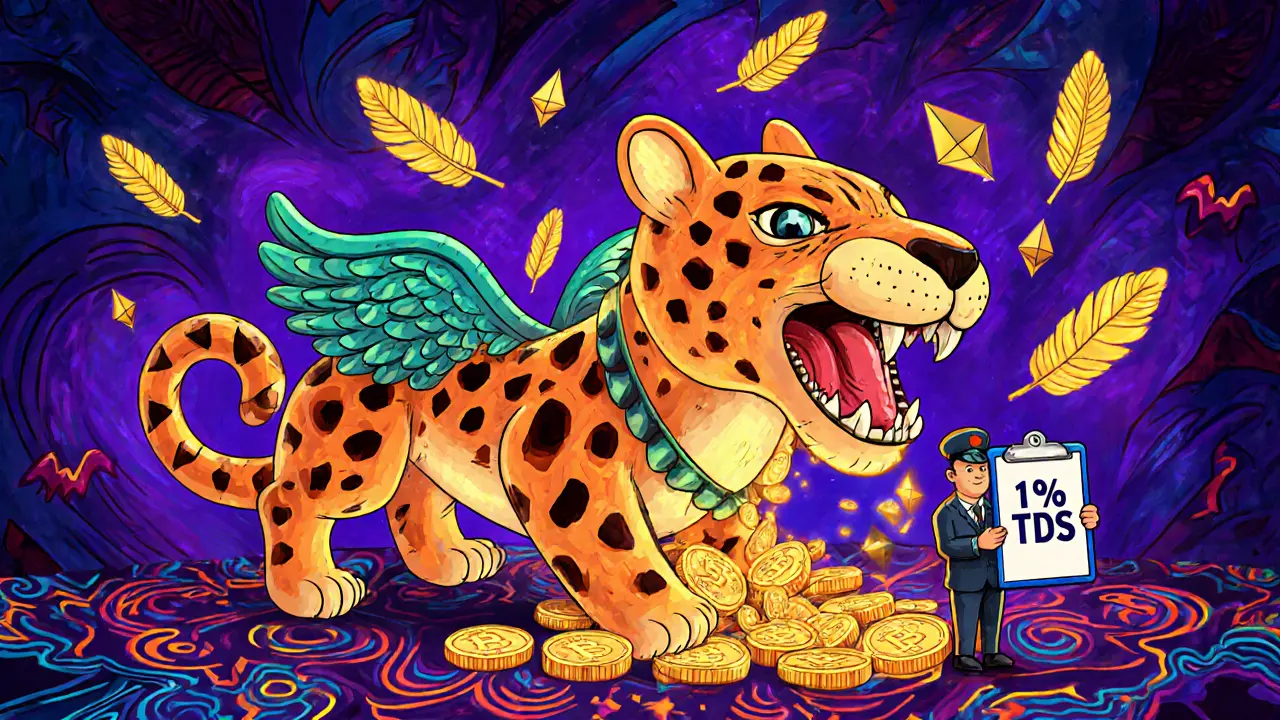
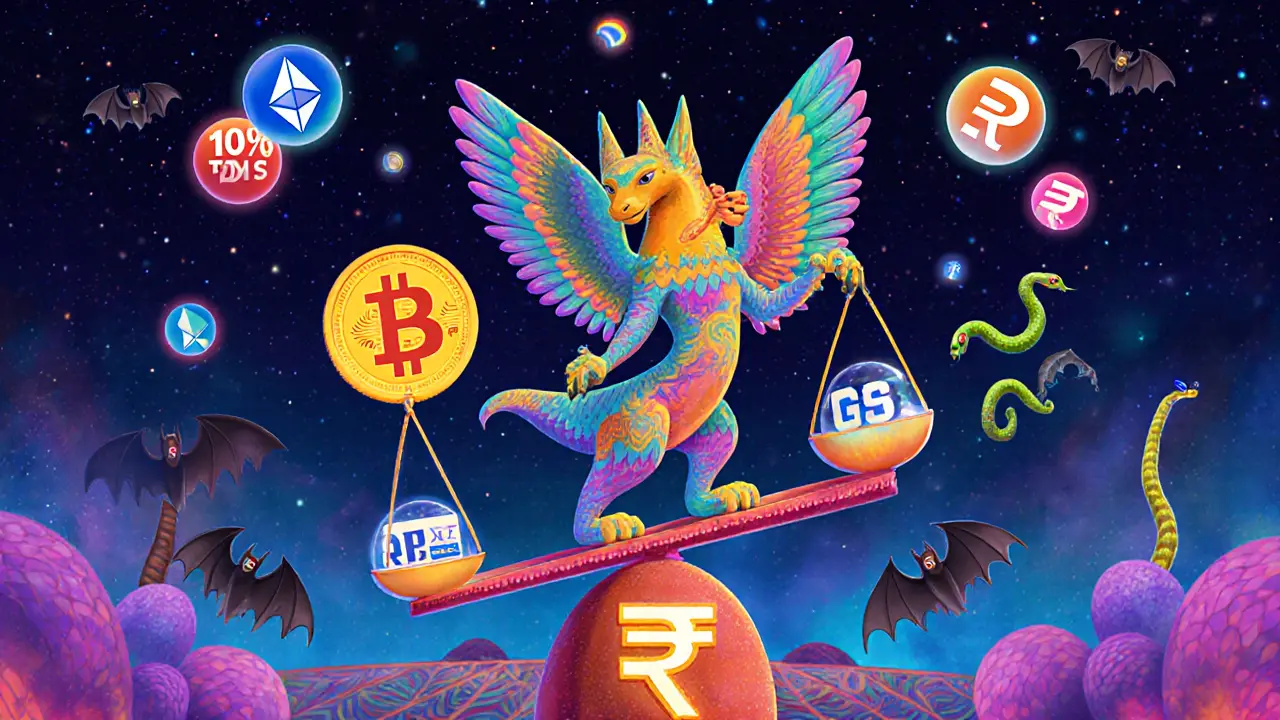



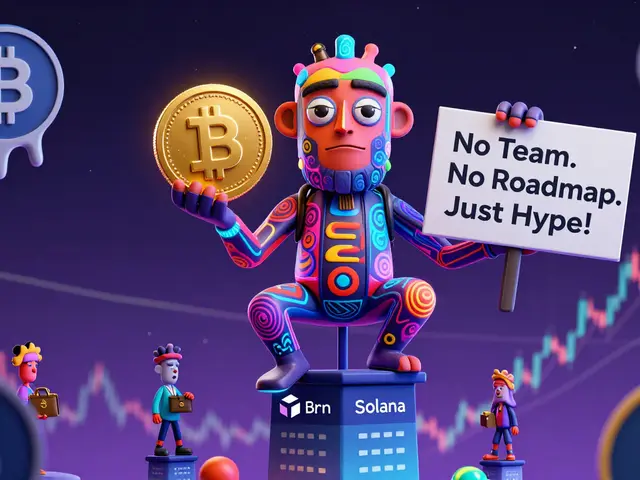
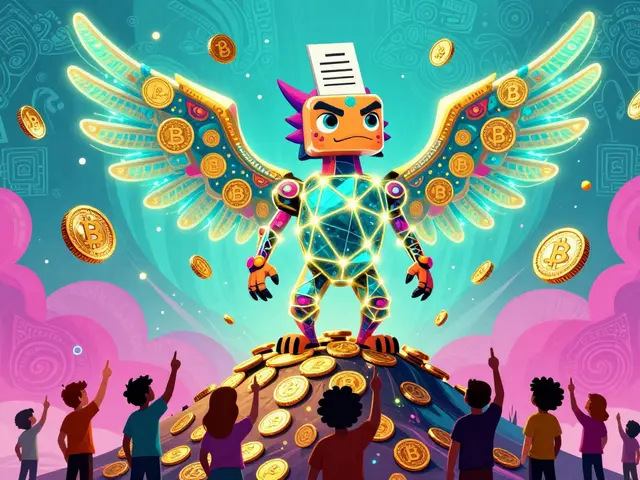

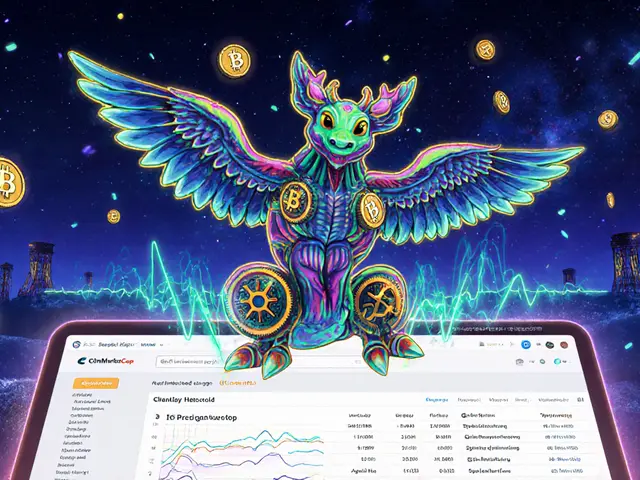
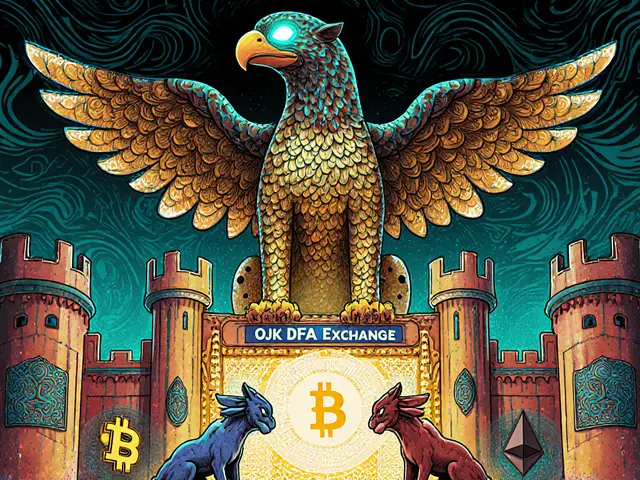


15 Comments
lol just stop trading already. 1% sounds small until you realize you're paying it every single trade. my wallet's bleeding.
Wait so if I move crypto between my own wallets it's fine? I thought everything counted. This is actually helpful.
This is the bare minimum. India needs stricter controls. The moment you allow unregulated P2P, you invite money laundering. TDS is not perfect, but it's a necessary step in bringing transparency to a chaotic market.
Let me be clear: taxing every single crypto transfer-regardless of profit-is economic absurdity. This isn't regulation. It's financial harassment disguised as compliance. Other nations are moving toward innovation. India is busy taxing its own citizens into silence.
I appreciate the breakdown. The part about double TDS on crypto-to-crypto trades was eye-opening. I had no idea both sides were being taxed. That’s brutal for active traders.
I used to trade daily. After TDS, I just HODL now. It’s not about belief in crypto-it’s about not wanting to pay 1% every time I rebalance. The system is designed to discourage activity, not encourage compliance.
This isn't taxation. This is a digital toll road where every lane is manned by a tax collector with a clipboard and a grudge. You can't even move your digital assets without paying tribute. And now they're talking about linking it to Aadhaar? Welcome to the Panopticon Economy, folks. Your wallet is now a surveillance node.
I just checked my Form 26AS... and yeah, I paid TDS on a trade where I lost 40%. That’s not tax. That’s theft. And now they want me to file Form 26QE on Binance trades? I don’t even know what a PAN is, let alone how to file it. This system is broken.
The real question isn't whether TDS is fair it's whether the government trusts its citizens enough to not be criminals if they don't watch every transaction like a hawk. We're being treated like children who can't be trusted with money and then punished for not being able to navigate bureaucratic nonsense
I get why it's done, but it’s so hard on small traders. I’m a teacher who dabbles in crypto. I didn’t sign up for tax forms and PAN numbers. I just wanted to learn. Now I feel like I’m doing something wrong just by holding.
bro i just use binance and dont think about it 😅 i mean if they wanna catch me they gotta find me first lmao
There’s a deeper issue here. We’re not just talking about taxes-we’re talking about the erosion of financial autonomy. When every movement of your digital assets is tracked, taxed, and recorded, you’re no longer owning your wealth. You’re leasing it from the state. And that’s not just inconvenient-it’s a philosophical shift in what freedom means in the digital age.
For anyone confused about P2P: if you’re trading on LocalBitcoins and someone sends you INR, you have to deduct 1% and get their PAN. It’s a pain, but skipping it means you could owe penalties later. I’ve been doing this for a year-just keep a spreadsheet. Trust me, it’s less stressful than getting a notice from IT.
i just use coinbase india now. they auto deduct so i dont have to think about it. 1% sucks but at least i dont have to do paperwork. my brain can't handle form 26qe.
This is why America should never adopt this. India is turning its citizens into tax accountants for a digital asset that’s supposed to be decentralized. This isn’t progress. It’s control. And the fact that they’re now linking it to Aadhaar? That’s not compliance. That’s digital serfdom.